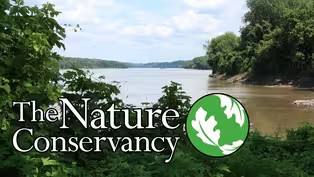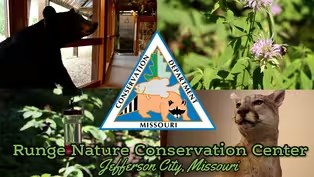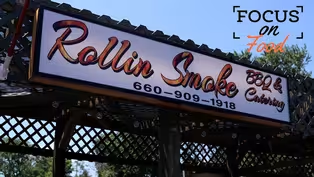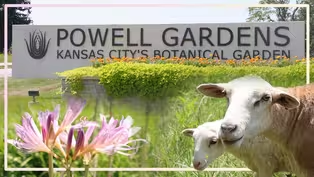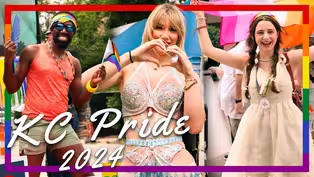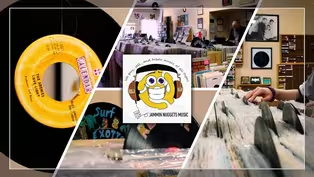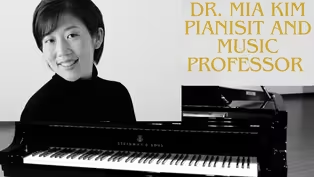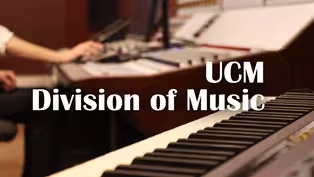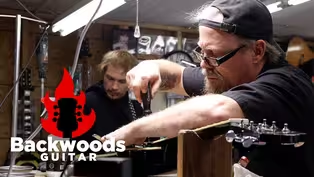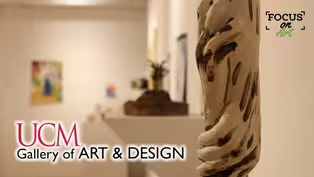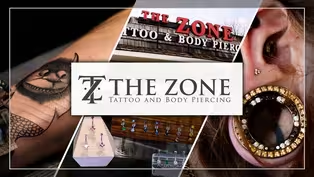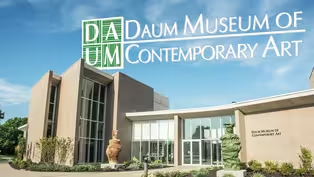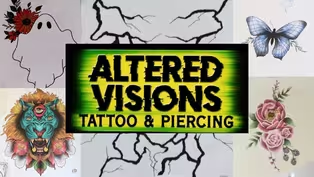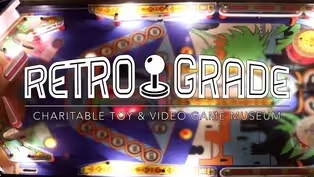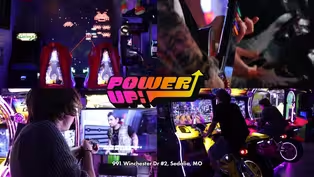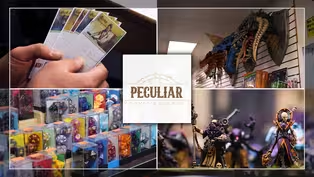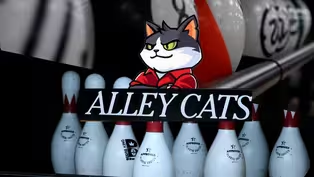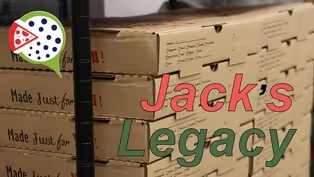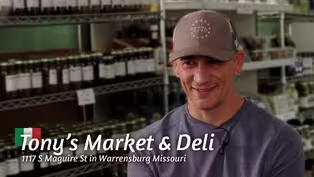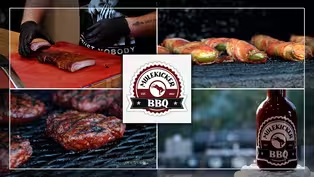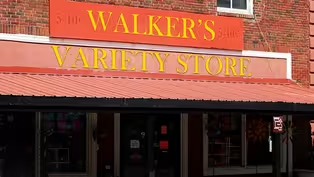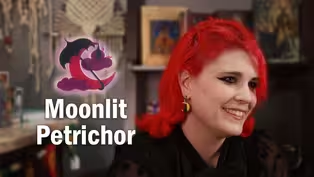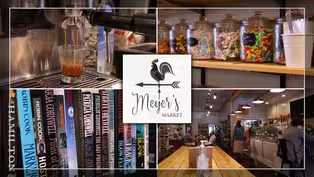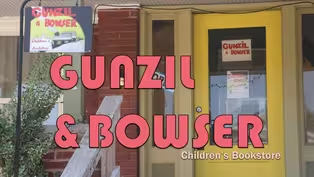Focus On
Focus On: Dr. Mia Kim
Clip | 6m 30sVideo has Closed Captions
Dr.Kim is a professor and musician involved with the University of Central Missouri.
Dr.Kim is a professor and musician involved with the University of Central Missouri. Learn more about ways that she helps her community and works to spread knowledge of music.
Problems playing video? | Closed Captioning Feedback
Problems playing video? | Closed Captioning Feedback
Focus On is a local public television program presented by KMOS
Focus On
Focus On: Dr. Mia Kim
Clip | 6m 30sVideo has Closed Captions
Dr.Kim is a professor and musician involved with the University of Central Missouri. Learn more about ways that she helps her community and works to spread knowledge of music.
Problems playing video? | Closed Captioning Feedback
How to Watch Focus On
Focus On is available to stream on pbs.org and the free PBS App, available on iPhone, Apple TV, Android TV, Android smartphones, Amazon Fire TV, Amazon Fire Tablet, Roku, Samsung Smart TV, and Vizio.
Providing Support for PBS.org
Learn Moreabout PBS online sponsorshipMy name is Maya Kim, and I'm a professor of music here at the University of Central Missouri.
I teach piano to music majors and non majors who are learning to play the piano for various reasons.
So I have played the piano since I was three years old.
Once I got on the piano bench, I never left.
by the time I was in late elementary school, I was pretty certain that piano was my thing.
It was always a matter of, I'm going to do music.
How?
That's going to take shape.
I'm not sure, but we're going to find out.
and I will say that I did not plan on being a teacher when I was in college.
We were required to take a teaching course, and, it was just the most fun thing ever.
I just, never looked back.
That was going to be part of my life.
and then as time went on, I went through school, and then, my, I figured out that my dream was to teach the university.
So I work with all kinds of students and in 1996, I landed here and have been very happy ever since.
Performing is about connecting with people, telling stories.
creating a space where they can experience their own stories.
I also think of it as like being, chefs.
And you make dinner for people.
I mean, I can make dinner for myself, and I enjoy eating plenty, but I really love to share it with other people.
And so performing as a way t.. and share music with other people.
And so I think of live performance as being you are there, I am here, we are sharing, we are sharing energy in the room that doesn't that doesn't transcend discrete.
You can sort of feel like it, but it's really it's different.
This past January, I had the great privilege and enjoyment to perform in New York City's Carnegie Hall.
I was there as a part of a program featuring the music of a Greek composer, Athanasius Cervantes.
and so we got to, perform there for a full house.
And, it was just it was very exciting.
I've played a lot of interesting places in the world.
but this, because it was so historic, was, especially cool.
In February, I performed a solo recital here in her recital.. And this was actually, this was the first time I had done an all solo program in maybe a decade.
I actually I was shocked when I really looked at the calendar.
but it was really fun for me because these are pieces that I have wanted to learn for years, and they've just sat on my shelf.
so it was a real labor of love.
I think of my job as a door opener, and I help students open doors.
Sometimes I introduce them to the fact that a door exists, and sometimes I help them open it.
Sometimes I push them through it.
but either way, once you walk through those doors and you've learned something, you're not the same.
You can't go back to not knowing things and not experiencing things and not feeling things.
You love seeing how students go from, you know, which is my right hand and which is my .. to expressing themselves at the piano, finding enjoyment at that, and discovering that it's a whole music is a whole language that they can speak.
and love helping them speak that language.
Well, if somebody came to me and said, I would like to study music, maybe I'd like to do it for college, maybe I'd like to do it for a job.
I'd be super excited because of course, I think music is a language, and anytime you can learn, a new language should go for it was language helps us communicate with people.
Communication is connection, and connection is the reason we exist.
if somebody says, I want to study it and I want to make this my life profession, I'd say, well, I will tell you that I think it's the most fun thing you can possibly do.
I don't know any other job I could possibly imagine more.
I will also say that, a lot of times people don't realize that being a musician and liking music are not the same thing.
Be ready to think about forging your path, and it won't be forged for you that you will have to think of a way forward and lay those stones down the path.
But if you do, it is something that you literally even on the worst days.
I enjoy it very much.
You don't.
You're not going to .. Everest in a day, or even a semester or or a year.
Learning to play the piano takes many, many years.
to do it well.
and in fact, even when you can do it well, it's a lifetime project to do it better.
but if you can be persistent and just do a little bit every day, you might be amazed at how far down the road you can get.
One of the things I have enjoyed the most about my 28 years here at the University of Central Missouri, is how connected the community is to this department.
And so that has led me to, several of the things that I do on the side, one of which is I'm the founder and the president of the Warrensburg Friends of Music, which is a philanthropic group of folks who want to support music in our community.
And so it's something we love to do.
I like to think that just the community gives to me and I can give back to it.
and I also, run the University of Central Missouri Community Music Program, which is a program by which students, children and adults can take lessons here, at the university with teachers who are trained in how to teach kids and adults, and they can pursue music recreationally and have a good time.
So be patient and being regular.
a little bit of attention every day just reaps you a lifetime benefit because it's you learn a new language.
You learn.
It's like you open these doors and you walk through them and have all these adventures.
Never went had.
Focus On: The Nature Conservancy
Video has Closed Captions
Clip | 8m 40s | The Nature Conservancy in Missouri is an environmental non-profit. (8m 40s)
Focus On: Runge Conservation Nature Center
Video has Closed Captions
Preview | 8m 30s | Runge Nature Center provides educational opportunities to learn about nature in Missouri! (8m 30s)
Video has Closed Captions
Clip | 6m 38s | Rolling Smoke BBQ is a restaurant in Warrensburg, MO (6m 38s)
Video has Closed Captions
Clip | 8m 30s | Powell Gardens is Kansas City's beloved botanical garden located in Kingsville, Missouri. (8m 30s)
Video has Closed Captions
Clip | 11m 49s | KC Pride Fest is an annual event organized by the Kansas City Pride Community Alliance (11m 49s)
Focus On: Jammin’ Nuggets Music
Video has Closed Captions
Clip | 6m 30s | Jammin’ Nuggets Music is a locally owned and operated record store in Sedalia, MO. (6m 30s)
Video has Closed Captions
Clip | 6m 30s | Dr.Kim is a professor and musician involved with the University of Central Missouri. (6m 30s)
Video has Closed Captions
Clip | 6m 48s | In this Focus on we interview Professor Eric Honour, (6m 48s)
Video has Closed Captions
Clip | 6m 37s | Backwoods Guitar is a place where anyone that has a passion for music can come and jam out. (6m 37s)
Focus On: University of Central Missouri Gallery Of Art and Design
Video has Closed Captions
Clip | 7m 5s | The UCM Gallery Of Art and Design shares artwork from the community and UCM students. (7m 5s)
Video has Closed Captions
Clip | 6m 30s | The Zone Tattoo and Body Piercing is a body modification establishment (6m 30s)
Focus On: Daum Museum of Contemporary Art
Video has Closed Captions
Clip | 6m 40s | The Daum Museum of Contemporary Art is an art gallery located in Sedalia, MO. (6m 40s)
Video has Closed Captions
Clip | 6m 12s | Altered Visions is a Tattoo and Piercing studio located at 817 S Maguire St in Warrensburg (6m 12s)
Focus On: Retrograde Charitable Toy And Videogame Museum
Video has Closed Captions
Clip | 6m 39s | Focus On: Retrograde Charitable Toy And Videogame Museum In Warrensburg, Missouri! (6m 39s)
Video has Closed Captions
Clip | 7m 5s | Focus On: Power Up Arcade in Sedalia, Missouri! (7m 5s)
Focus On: Peculiar Games & Hobbies
Video has Closed Captions
Clip | 6m 29s | Peculiar Games & Hobbies is a game store located in Peculiar, Missouri! (6m 29s)
Focus On: Alley Cats Bowling Alley
Video has Closed Captions
Clip | 6m 30s | Focus On Alley Cats Bowling Alley Warrensburg, Missouri! (6m 30s)
Focus On: Tony's Market & Italian Deli
Video has Closed Captions
Clip | 6m 36s | Focus On: Tony's Market & Italian Deli (6m 36s)
Video has Closed Captions
Clip | 6m 33s | Focus On: Mule Kicker BBQ (6m 33s)
Focus On: Walker's 5&10 Variety
Video has Closed Captions
Clip | 6m 42s | Focus On: Walker's 5&10 Variety (6m 42s)
Focus On: The Red Shanty BBQ & Roadside Cafe
Video has Closed Captions
Clip | 6m 38s | Focus On: The Red Shanty BBQ & Roadside Cafe (6m 38s)
Video has Closed Captions
Clip | 6m 39s | Focus On: Moonlit Petrichor (6m 39s)
Focus On: Gunzil and Bowser Children's Bookstore
Video has Closed Captions
Clip | 6m 45s | Focus On; Gunzil and Bowser Children's Bookstore (6m 45s)
Providing Support for PBS.org
Learn Moreabout PBS online sponsorshipSupport for PBS provided by:
Focus On is a local public television program presented by KMOS
